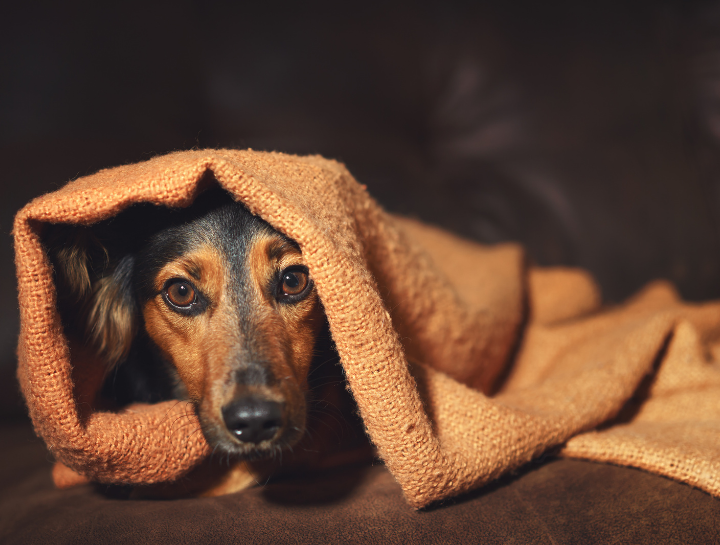Summer Scares: Dealing with Noise Anxiety in Pets

Thunderstorm season and the 4th of July are quickly approaching – a time of year that many pet owners dread. ‘Tis the season of trembling, anxious pets who are either destructive, try to escape, or hide for hours at the first crack of thunder or pop of fireworks. An estimated 10 million dogs (and lots and lots of cats) suffer from noise-related anxiety, which often leads to a full-blown phobia.
Because loud noises are an inevitable part of life, the team at Advantage Veterinary Center has come up with some strategies for alleviating noise anxiety in pets.
Noise Anxiety in Pets
Pets don’t understand what causes loud, abrupt noises like fireworks, thunder, construction noise, gunshots, etc., and fear is a natural response. Depending on their level of anxiety, a pet may experience any or all of the following reactions to loud noises:
- Panting
- Trembling
- Hiding
- Attempts to escape
- Clinginess
- Barking, whining, yowling
- Destructive behavior (scratching at doors, windows, or furniture)
- House soiling
Helping Them Cope
Because most pets struggle with loud noises, we recommend staying with them or arranging to have a trusted friend or family member stay with them whenever possible during a noisy event. Other ways you can help your pet with noise-related anxiety include:
- Close all windows and doors and play music or turn on a fan to muffle outside sounds. Pets who prefer to hide during noisy events may appreciate a cozy spot in a quiet room that’s outfitted with their favorite bedding, toys, and plenty of fresh water.
- Distract your pet with fun toys, games, or obedience work.
- Some pets benefit from a pressure-based garment like the Thundershirt, which has been shown to reduce noise-related fear and anxiety.
- Pets face an increased risk of escape during a thunderstorm or 4th of July celebration. Make sure your pet’s microchip has been updated with your current contact information, and double check that they’re wearing a collar with ID tags at all times.
- Chronic noise anxiety can take a toll on your pet’s health and decrease their quality of life. Your veterinarian is happy to discuss behavior modification and desensitization and/or medications designed to help your pet feel more comfortable.
With a little planning and preparation, it’s possible to enjoy a safe, fun, relaxing summer with your pet. Please don’t hesitate to contact us for more information.
